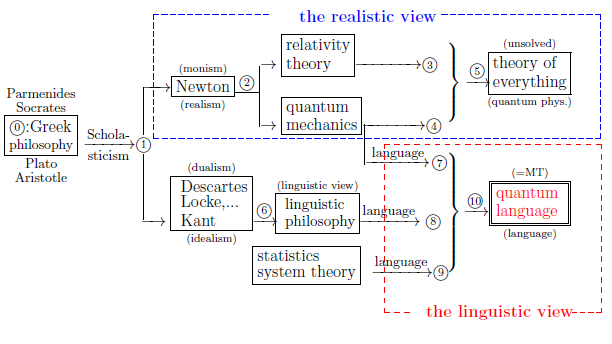Abstract (18.0: The reliability in psychological test)
Abstract:
In this chapter,
we will
introduce the measurement theoretical
approach to
a problem of analyzing scores of tests for students.
The obtained score is assumed to be the sum of a true value and
a measurement error caused by the test,
in which a student's score is subject to a systematic error
(=noise)
depending on his/her health or psychological condition at the test.
In such cases,
statistical measurements are convenient
since these two errors
(i.e.,
measurement error and systematic error)
in measurement theory
can be characterized in the different mathematical structures
respectively.
The goodness of a test is characterized by "reliability coefficient"
such that
\begin{align*}
\mbox{
[reliability coefficient]
}^2
=
\frac{\mbox{[systematic error]}^2}{
\mbox{[systematic error]}^2+\mbox{[measurement error]}^2
}
\end{align*}
Now we have the following problem:
This chapter is extracted from the following.
| $(\sharp):$ | K. Kikuchi, S. Ishikawa, "Psychological tests in Measurement Theory," Far east journal of theoretical statistics,} 32(1) 81-99, (2010) |
Again recall that, as mentioned in $\S$1.1, the main purpose of this book is to assert the following figure 1.1:

